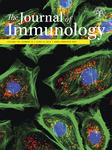 Northwestern University has reposted a publication from the Medical Humanities & Bioethics Program at the Feinberg School of Medicine that included a controversial essay about oral sex, after it was pulled for more than a year.
Northwestern University has reposted a publication from the Medical Humanities & Bioethics Program at the Feinberg School of Medicine that included a controversial essay about oral sex, after it was pulled for more than a year.
The essay was included in an issue guest edited by faculty member Alice Dreger—who penned a post for us in March about the ways in which attacks on academic freedom have increased, during the time her own publication had been taken offline.
The essay, “Head Nurses,” presents the story of William Peace, who wrote that he received oral sex from a nurse after he became paralyzed at the age of 18:








 A Boston doctor indicted on charges of Medicare fraud in 2007 has had a paper relating to the case retracted this month.
A Boston doctor indicted on charges of Medicare fraud in 2007 has had a paper relating to the case retracted this month.